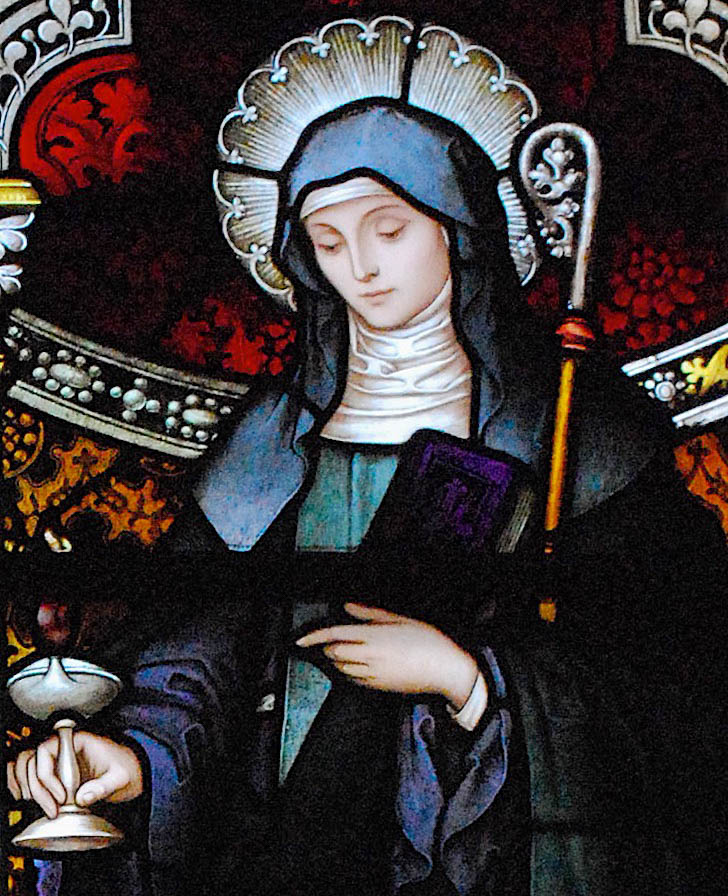Patron Saint of orphans and abandoned children; Canonized on July 16, 1767 by Pope Clement XIII
For some, the greatest tragedies in life lead them down a dark path. For others, tragedy is met with faith and hope and becomes the beginning of personal transformation. Such was the case with today’s saint.
Jerome was born into an upper-class ruling family in Venice. When Jerome was around the age of ten, his father died. Jerome continued to grow in virtue and pursue his studies. He was not known for excelling, but for being sociable, friendly, cheerful, strong-minded, and enthusiastic.
When he was a teenager, Jerome joined the military, as was common in his family. While in the military, Jerome became more ambitious about obtaining honors than growing in virtue. His ambitions were realized as he was honored with promotions in rank. At the age of twenty-five, he participated in the War of the League of Cambrai and was given command of the fortress of Castelnuovo, just west of Venice. In 1511, after many of his soldiers abandoned him, he and three others were captured and imprisoned.
At first, Jerome perceived his capture as a defeat, but it would be the beginning of his lasting victory in Christ. While chained from head to foot and imprisoned, Jerome had time to reflect upon his life. Though his imprisonment lasted only a month, it was a powerful and transforming month. He returned to the faith of his youth, opened his heart to Christ, and especially turned to the intercession of the Mother of God. He vowed to her that if she were to set him free, he would change his life and devote himself to the will of God. And that’s what happened, to an extraordinary degree.
On September 27, 1511, Jerome encountered the Mother of God in his cell as a woman clothed in white. She accepted his promise, gave him the keys to his chains, and then led him through the compound and out of the city without being noticed by the guards. By her inspiration, he walked to the town of Treviso where he entered the church, presented himself before a statue of Our Lady, and his life began to change. Jerome remained in military service for the next few years but then abandoned his worldly ambitions and began to study theology.
By the year 1526, Jerome’s mother and two of his brothers had died, leaving him to care for one of his brother’s orphaned sons. By then, Jerome had a heart for charity; just like his imprisonment, this tragedy became the beginning of his future calling to care for abandoned and orphaned children. Of this period in his life, a close friend would later write, “By often listening to the word of God, he started to recall his ingratitude. He remembered his sins against the Lord. He wept often and, at the foot of the Crucified Lord, prayed to him not to be his judge, but his savior.”
In 1528, a severe famine and plague struck Venice, and many children were left orphaned. In addition to caring for his nephews, Jerome began to care for other orphans, providing for them out of his own means. He was a man energized by love and tireless in his care of the poor, abandoned, sick, and orphaned. He even took care of those who had died by ensuring their proper burial. In the years to follow, his warm and energetic personality, coupled with his faith and devotion to the suffering Christ, enabled him to build hospitals, orphanages, and places of refuge for reformed prostitutes.
In 1532, Jerome moved to Somasca, a city between Venice and Milan, and with two priests, founded the “Company of the Servants of the Poor” (later called the Order of the Somascan Fathers). These priests committed themselves to a life of poverty and service of the poor, sick, and especially orphaned children.
Jerome devoted himself to the wholehearted proclamation of the Gospel in both his words and deeds. He organized his brothers and their homes with great skill. Many converted and grew fervent in their faith. His devotion to those suffering from the plague was so great that he himself contracted the disease and died a martyr of the plague in early February, 1537.
Saint Jerome was, at first, seduced by the glory and honor one can attain from the world. Apparent tragedy, for him, turned into glory. His imprisonment and suffering opened his eyes; he repented and turned his life toward Christ. He found his Lord in the poor, suffering, sick, and orphaned. He loved His Lord in them and became single-minded in his service.
Ponder your own ambitions in life. It is easy to become seduced by the passing “glory” of this world. But that false glory is fleeting. Seek to imitate this holy man by discovering the presence of God in those most in need of your love. Love them. See their dignity. Become an instrument of God’s mercy for them, and you, like Saint Jerome, will have discovered your purpose in life.
Source: https://mycatholic.life/saints/saints-of-the-liturgical-year/february-8-saint-jerome-emiliani-priest/








